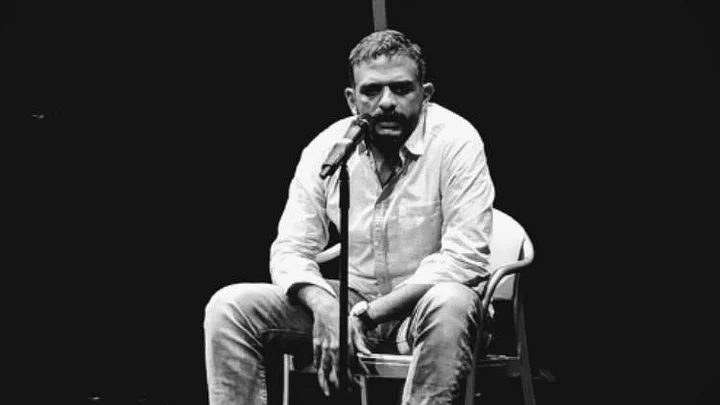In a sudden move, Kalakshetra Foundation, the Chennai-based arts and culture academy, has withdrawn permission to conduct Carnatic singer TM Krishna’s book launch event at its premises on Thursday, 30 January, citing fears of ‘political, cultural and social disharmony.
The book launch, originally scheduled to take place at the academy’s auditorium, has now been shifted to the Asian College of Journalism in Chennai’s Taramani on 2 February.
Titled Sebastian and Sons, TM Krishna’s new book is a ‘brief history’ of the makers of the mridangam, the Carnatic percussion instrument.
In a letter to Westland Publications, Revathi Ramachandran, the Director of Kalakshetra Foundation, said, “Kalakshetra Foundation is an autonomous body under Ministry of Culture, Government of India. Being a Government organisation, it cannot allow any program that may instigate political, cultural and social disharmony.”
The move by the autonomous body, which falls under the Government of India’s Ministry of Culture, has taken the singer and author by shock. The decision follows the publication in The Hindu on Tuesday of an excerpt of the book titled ‘Keeping the cow and brahmin apart’.
With the world of Carnatic music being dominated by Brahmins, the book discusses the role of mridangam makers, who are primarily from Dalit communities.
The excerpted portion of the book in the newspaper addresses the question of cow worship by Brahmins while the mridangam, played by the community, is made of cow skin.
Specifically, it refers to the reluctance of celebrated Brahmin artistes like Palghat Mani Iyer in acknowledging that the mridangam meant needing the skin of the cow.
“The book review which has appeared today in the newspaper contains certain statements relating to the book which touch controversial issues and certainly have a lot of political overtones. We were unaware of the controversies surrounding the subject matter of the book at the time of renting of auditorium for the book release,” Kalakshetra said, withdrawing permission given for use of its auditorium.
‘Their Loss’: TM Krishna
Speaking to TNM, singer-author TM Krishna says that it is time to confront uncomfortable realities.
“We use cow skin to make these instruments. If the skin is not procured, these instruments cannot be made. It is wrong to say that we can't discuss the politics around it. We have to. The same mridangam is played on the Kalakshetra stage, the same mridangam is what (Kalakshetra founder and Bharatanatyam dancer) Rukmini Devi danced to. The mridangam originates in the slaughterhouse. This is just reality. If we can't talk about cow politics, will they stop playing the mridangam tomorrow?” he asks.
Explaining the idea behind the book, Krishna says that it is to celebrate the mridangam makers who are subject to social marginalisation.
He says, “It is messy, but isn't that what art and culture is about? To call something controversial because we're uncomfortable with it is a trope. There is nothing controversial about the dichotomy between cow worship and needing cow skin for the mridangam. This is about human beings who go through all that struggle to make it.”
When asked about his response to Kalakshetra, Krishna says that the organisation has lost out on the opportunity to pay its respects to the makers.
“It is their loss. Kalakshetra would have been a great place for all them to come and give the makers the stage they deserve.”TM Krishna
A portion of the excerpt reads, "The cow is removed from the artist’s sight. Since the killing and skinning happen beyond his circle of existence, he can act as if it does not happen. The maker stands at the threshold, keeping the cow and the brahmin apart, helping the latter maintain his ‘purity’.
So, the maker is vital for the player, yet his role also keeps the maker ‘polluted’ and unequal. Once the blood is removed, the skin is cleaned and cut in shape, then dried and finally brought to the artist, it has been transformed through the labour of the makers into a resource, a lifeless ingredient. To Ravikumar, the maker, the skin itself has life; one to which no negativity is attached because it comes alive through shruti."
(This article has been published in an arrangement with The News Minute)
